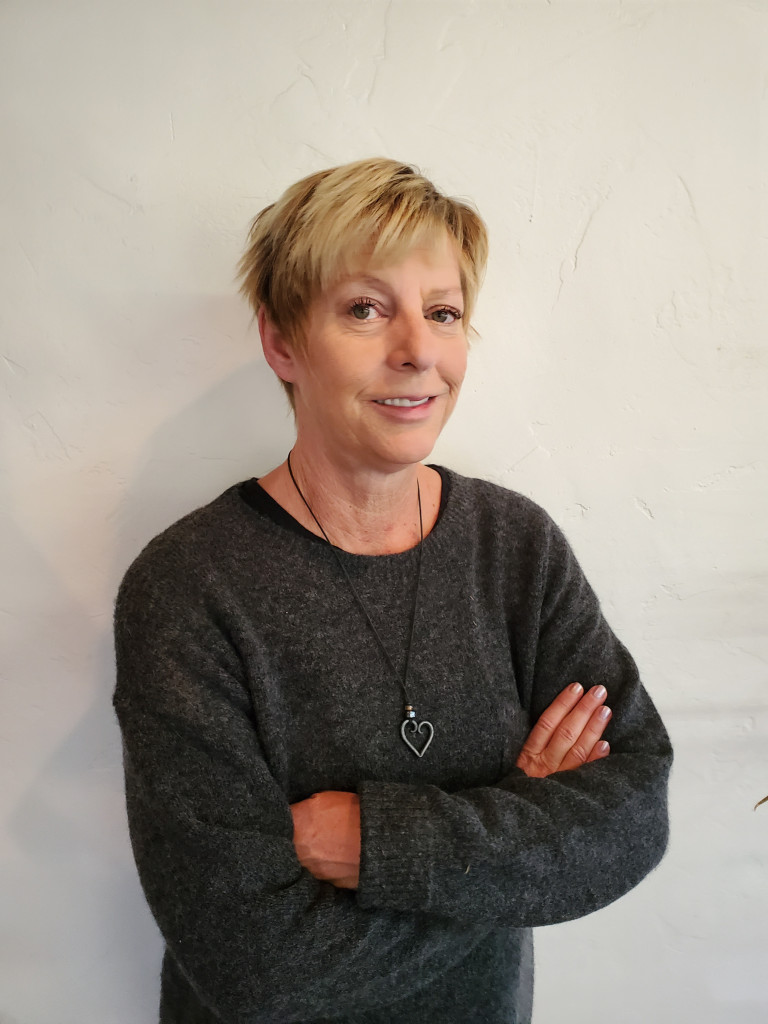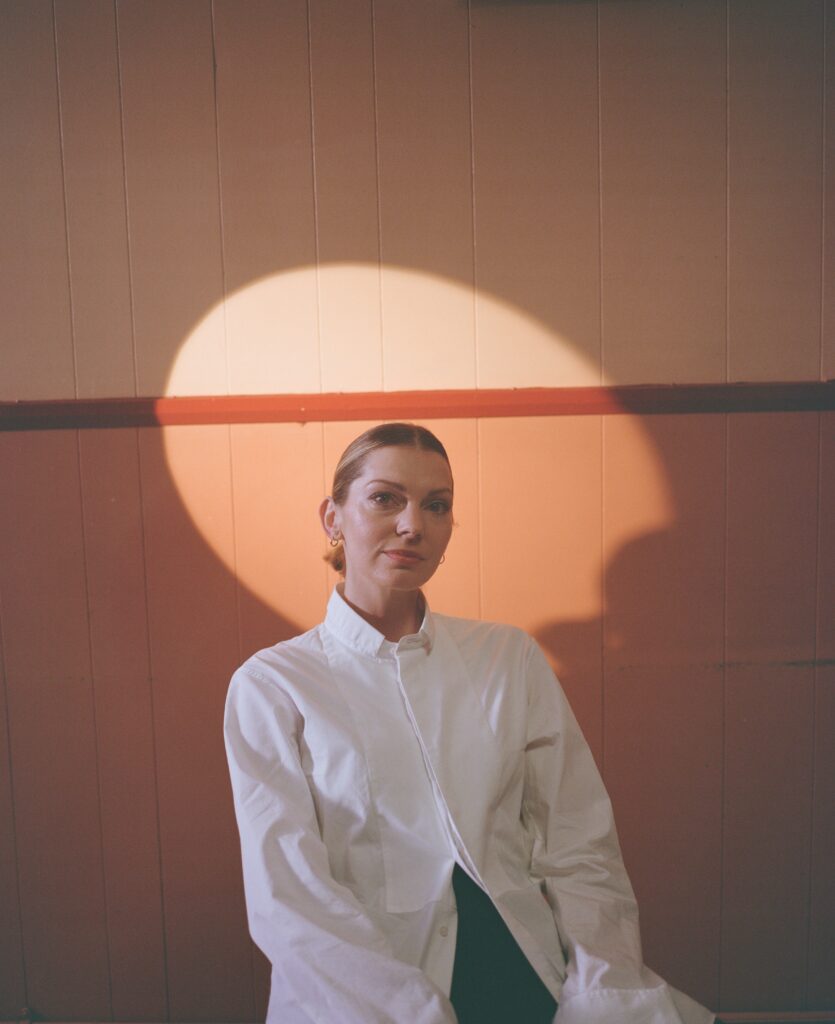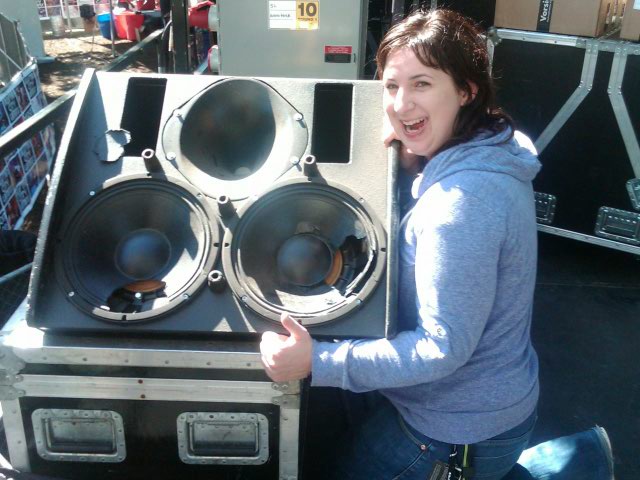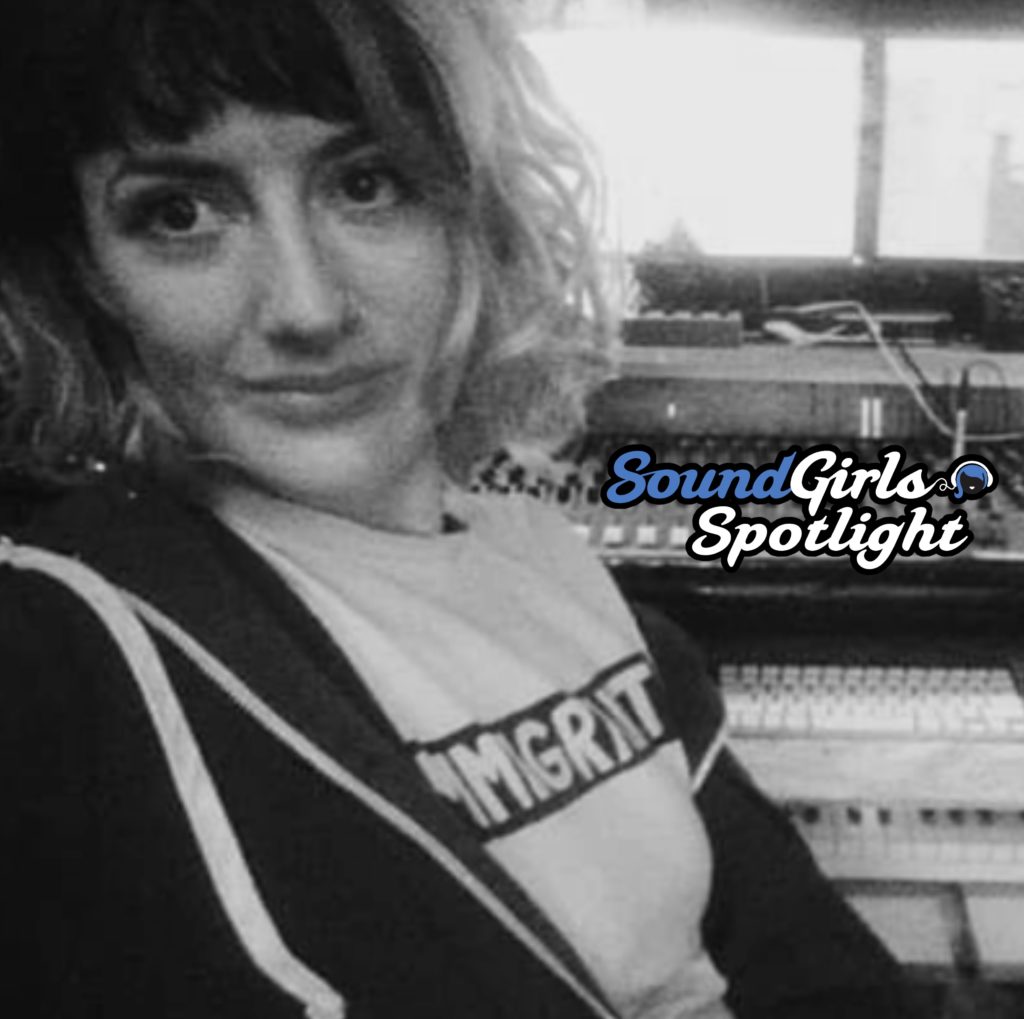Beginning her career in live sound at the age of 18, Karrie Keyes has been the monitor engineer for Pearl Jam and Eddie Vedder for 27 years. She’s also spent ten years 1990-2000 as a monitor engineer for Red Hot Chili Peppers and has mixed a very diverse list of additional artists.
Aversion to Conformity
As a teen, Karrie wasn’t sure what she wanted to do, but she knew one thing – she wasn’t going to conform to society’s standards and soon found that the punk rock scene gave her the philosophy and ideals she found most suited her. “During my teen years, I rebelled against all things that sought to mold and conform me; school, church, societal norms, and expectations. I mainly hung out with two groups of guys as I found I related to them easier than girls. The commonality between the two different groups was music, one group mainly listened to rock music, and the other group listened to punk rock.” Karrie eventually began to hang out more and more with the punk rockers and during that time started dreaming about traveling the world as a writer. “I would have none of the trappings of society; no mortgage, no boss, no husband, and no kids. Each of the guys had similar dreams, but theirs revolved around touring the world as a punk rock band.”
“I watched and listened as they learned to play their instruments and write songs. They never once asked if I wanted to be involved and I did not have the courage to ask. I could be a spectator, a fan, a girlfriend. One day we went to a friend’s rehearsal space, and I saw a soundboard for the first time and wondered if I could run it? Our friend, Ben, was older and in a band that got paying gigs, he laughed at me and told me girls couldn’t run the soundboard. I wondered what other skills were needed to run it or if the only qualification needed was being a dude.”
“I then started to wonder what other jobs there might be in the music industry and had only a vague sense of what roadies did or what it took to put on a live show. I was in orchestras and band through school and knew I wanted to be involved in music but did not know how.” When Karrie inquired in high school about careers in the field, she was told that no one made a living in the music industry. “I wondered how that could be. I saw bands and artists all the time on MTV and thought – they must be making a living? I only had the vaguest sense of what it took for a band to make an album or to put on a concert, but I sensed Fleetwood Mac was not setting up their equipment and I was sure Van Halen was not just paying their roadies with beer and pizza. I had no idea how one would go about becoming a roadie, but sensed that being a woman would be a huge obstacle.”
After high school Karrie ‘half-heartedly’ enrolled in a community college where she did what any other 18-year-old with no idea of what they want to do does: “I worked part-time, showed up at some of my college classes, and went to punk rock shows.”
“As it is with so many things in life, my path would instantly change over a simple decision. The decision was- what punk rock show to go to Fear or Black Flag? The choice was pretty simple as my friends were going to Fear and I could get a ride – Black Flag was to be attended on a public bus that stopped running at 10 pm, which meant I would be stranded until the morning. Black Flag it was! I never did things the easy way!”, she laughs. “The show was a video shoot for the In My Head Tour and Painted Willie and Gone opened up. I managed to weave my way up to the front. Minutes before Black Flag went on, one of their roadies came over and talked to me and I explained I wanted to learn what he did, to learn to do his job! He told me to hang out after the show, and he would show me. Of course, I had no idea what he actually did. So I hung out after the show and he taught me one of the things he, as a sound engineer, had to do: wrap a mic cable. The next day I found myself in Palo Alto with Black Flag and by the time we returned to Los Angeles I knew what I wanted to do – Sound – and my new friend Dave was going to teach me. He inspired me not to give up. Shortly after Black Flag finished their tour, I started working every gig I could with Dave and Rat Sound. I eventually was able to quit my part-time job and never went back to school.
Working for the Underdog
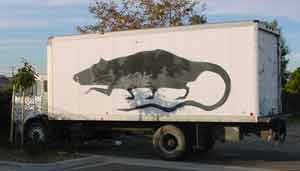 At Rat Sound, Karrie started out at the bottom, loading and unloading trucks full of PA systems and working every show she could from punk rock to gospel and everything in between. This gave her the opportunity to learn all about the gear, how it works and how to troubleshoot. She found the hands-on time with the equipment and opportunity to try things that were not exactly the norm, were invaluable learning experiences. “I did everything – load in and load out, setting up the sound system, wiring the stage, and doing the set changes on weekends for like 20 dollars a show or something ridiculous.”
At Rat Sound, Karrie started out at the bottom, loading and unloading trucks full of PA systems and working every show she could from punk rock to gospel and everything in between. This gave her the opportunity to learn all about the gear, how it works and how to troubleshoot. She found the hands-on time with the equipment and opportunity to try things that were not exactly the norm, were invaluable learning experiences. “I did everything – load in and load out, setting up the sound system, wiring the stage, and doing the set changes on weekends for like 20 dollars a show or something ridiculous.”
There were two partners in Rat Sound- Dave and Brian, who each had their system. Karrie worked for Dave. “Dave and I did every show by ourselves for years. Sometimes we would hire a third person, but for the most part, it was just the two of us.”
Rat was hired for many Goldenvoice shows, and Goldenvoice promoted most of the punk rock shows in Southern California. Rat first was hired because the punters could not climb the sound system. Goldenvoice and the So Cal Punk Rock scene were somewhat accepting towards everyone, and Karrie did not face obstacles because of her gender. “The Heavy Metal scene of the ’80s in LA was not very inviting for women ‘roadies’, but for Punk Rock and Alternative, it was hardly an issue. In all of them, Rat, Goldenvoice, and Punk Rock, the common thread was; we were all underdogs working towards a common goal.”
What obstacles have you faced?
“Being a woman. I just worked as hard as I could. Working for a small sound company had its challenges as well, I was either proving myself as a woman or as a small sound company.” In her early days at Rat Sound, she ran into cultural bias. “I always had a difficult time working with Middle Eastern acts, who just could not wrap their heads around a woman in my position. It was just so against their culture. I use to get very upset, and I now realize it was probably very confusing and upsetting to them as well. When I started doing sound almost 30 years ago, I took a lot of heat from people. You just didn’t see women doing monitors, you still don’t, but I can say it has mellowed a bit. Either that or I just don’t care anymore and tune it out.” Karrie recalls that the core crews she’s toured with have always been respectful, and being a woman has not been an issue. “Although there is always the jerk on tour. I ignore them at this point, and often they are only touring with us for a short period. Usually, I don’t even know about it, as they would not dare say anything to me. I get more shit from the local crews.”
What are some of the lessons you’ve learned throughout your career?
Karrie’s experience of mixing so many styles of music (Jazz, Metal, Country, Punk, Reggae) in her early days with Rat has helped contribute to her job mixing Pearl Jam, who is not your straightforward rock band. The five members have widely ranging monitor needs with each mix being completely different from the others.
“I still think the way to gain the most experience with live sound is by being on the ground and working as many shows as you can. Working for a smaller sound company affords these experiences. The diversity in shows provides you with so much experience when it comes to mixing. The sheer number of engineers you end up working with, and you get to see their ideas and processes working or not working.”
A terrible show in her youth would have devastated her, but now she realizes that you just can’t always have perfect shows. However, she does try to draw from the bad shows and analyze what she could have done differently. “I’m always learning”.
What are the benefits of working with the same band for so many years?
“You can keep evolving and perfecting. Eventually, you all know each other so well and navigating the other personalities becomes natural. However, you cannot become complacent in the job. You have to keep working on issues or progressing forward, whether by learning new gear, or learning new tricks, but you get to a point when you’ve really got it down and no longer need to be changing things and starting over with new gear. Sometimes it can get old when you keep hitting the same issues, such as the volume on stage. I am trusted so have more leeway to try different things – but I also know my band very well and don’t expand trying new things into areas that I know are not going to fly.”
Advice for those getting started:
My advice is just to keep going and not to give up – if one door is shut on you, try another door. You are going to knock on a lot of doors, but the ones that open for you – walk through and keep going.
Always keep learning- take advantage of all the online courses and information out there.
Network – find a mentor.
Show up when you say you will – be reliable, ask questions, and take risks
When you are given an opportunity, take it.
Hone your diplomacy skills – they will benefit you on the job and also help you navigate through any sexist crap that you are going to have deal with.
Career Highlights
The Untouchables were a popular Southern California Ska band; No Doubt often opened for them. It was my first gig as an engineer for the band. It was an important step as I took over for the ME as he moved to FOH. That organization not only gave me a chance but Rat Sound as well and always believed in us. The gigs were always full on and taught me how to work fast and to deal with the needs of ten musicians.
Social Distortion – I worked and was hired for many shows Social Distortion did in the Southern California area. They were one of my favorite bands and I spent a lot time pinching myself. Social Distortion taught me that one size does not fit all. Mike Ness wanted his mix to sound as if it was coming from FOH. It was not as easy to achieve as you think.
Touring with Fugazi -The best live band ever! Every show made all the driving, the Motel 6’s, the Denny’s, the gigs with no local crew, security, barricade, or catering worth it. Every single day. If their indefinite hiatus ever comes to an end, I will gladly climb back into the truck. It was a privilege.
Pearl Jam – VH1 Tribute to The Who
Again there have been so many gigs that were important, challenging, fun, and played through tears and pain over the years – but this one stood out. It was a marker of how professional our organization had become. How our team pulled together, dropped all ego, and did what we needed to do so the band could do what they needed to do. Anyone that has seen it knows that Pearl Jam nailed it.
Red Hot Chili Peppers – Woodstock III
While there are many memorable shows over the ten years I worked for them, Woodstock III stands out. This gig happened after I left their organization to be off the road for my daughters. This gig fell in between one of the firings of the ME and hiring a new one. I would always fill in until another engineer was hired. I remember being happy and relieved that I would not have to mix this show.
We had played the second Woodstock, going on before Peter Gabriel, who headlined. It was a complete disaster. We did not have a line check earlier in the day, did not have any monitor equipment and were stretched thin with a bare bones crew. I let the sound guys push me around and mix position was about 80 feet from the band.
Needless to say, I was not happy when I found myself being asked to do this gig. I made a few demands – we were bringing in our system (which is not uncommon now, but was not standard practice then) this made our production manager less than happy as well as production on the Woodstock end.
We only had one promo warm up gig before going in, so the mixes were not dialed, and the system was not set up to go into a festival. I worked thru the day doing whatever I could during other band’s set changes so I would be ready. The sound and production guys were awesome and helpful.
When the band hit the first notes, I knew I had nailed it. It sounded great, and I knew the band was happy. At the end of the gig, I discovered Pearl Jam’s site coordinator and stage manager was head production on Woodstock and had told everyone to help me and listen to me as I knew my shit. The sound crew came up after the gig and said it was so nice to see an engineer that knew what they were doing. And three weeks later at a band rehearsal, Anthony told me that the sound was perfect.
Find More Profiles on The Five Percent
Profiles of Women in Audio
